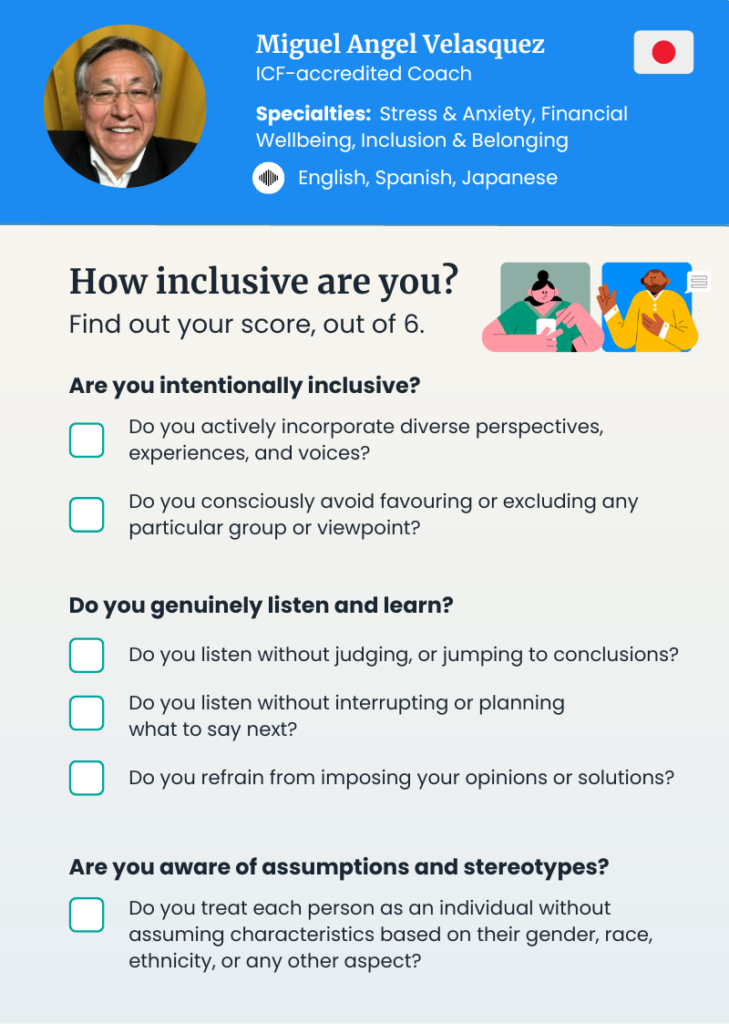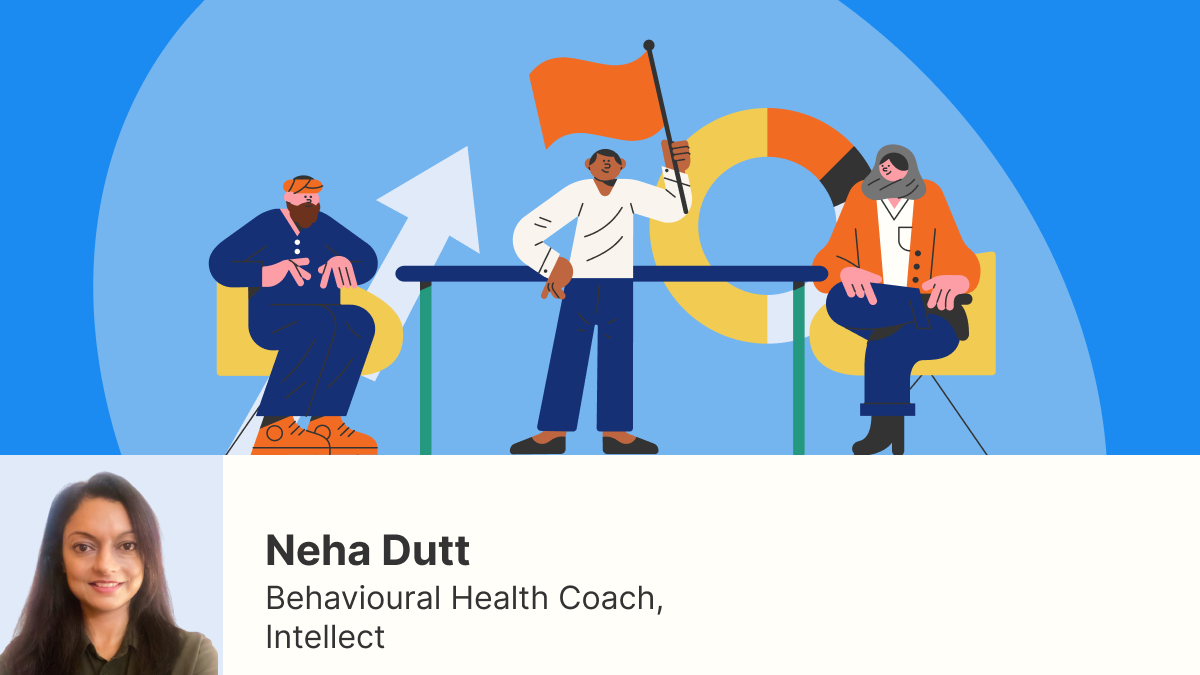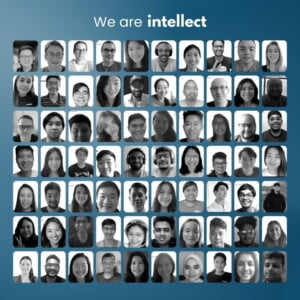“If diversity is inviting everybody to a party, equity would be keeping the dance floor open for all to join. And inclusion would be inviting everyone to join. That’s what makes a great party,” quoted Neha Dutt, Intellect’s behavioural health coach, in a webinar on Diversity, Equity, and Inclusion (DEI) for Intellect’s partners.
Over the years, DEI has gone from a good-to-have to a must-have; a priority for organisations who pride themselves on treating employees fairly. DEI constitutes:
- Diversity refers to the stuff that makes your employees unique individuals. This can range from characteristics such as age, gender, and ethnicity to your employees’ abilities.
- Equity refers to an organisation’s ability to acknowledge diversity and act on it. They recognise that needs and wants differ across employees, and provide equal access to opportunities to all.
- Inclusion refers to an organisation’s commitment to create a sense of belonging so all employees feel valued and respected.

How DEI impacts the bottom line
DEI not only creates psychological safety and contributes to workplace culture; it also impacts the bottom line positively.
First of all, it makes good business sense. A study by LinkedIn found that businesses with higher levels of DEI outperform their peers. Notably, they are 35% more productive, earn 2.5 times more per employee, and make better decisions 87% of the time.
“If you feel respected, if you feel your views are valued, if you feel included in a group or team, it takes away a lot of the stress that comes with work culture,” said Neha. “As an employee, you can focus more on the task at hand and be more committed and motivated, increasing your overall work performance.”
Secondly, it gives organisations a leg up in the area of recruitment and retention. According to the same study, 76% of employees and job seekers cite DEI as an important factor when considering job offers. 80% of them want to work for a company that values it.
Finally, as DEI exposes employees to different world views, it can help businesses gain a deeper understanding of different market segments. This allows them to develop products or market them in a way that appeals to their target demographic.
“It’s a win-win situation for both employees and organisations. That’s why DEI is so important to talk about and understand,” said Neha.
Where does your organisation stand?
Unfortunately, organisations, especially those in Asia Pacific (APAC), have a long way when it comes to DEI. According to a study by Google, APAC respondents scored 10% to 15% below the global average when questioned about their perceived importance of equal rights and interest in other cultures. In Singapore, 3 in 5 employees find DEI efforts to be lacking.
Even though DEI advocacy is on the rise, some organisations fall short when it comes to implementation. This is understandable, given that every workforce is unique and there isn’t a playbook to rule them all. As an employee, how can you make sense of your organisation’s efforts to boost systemic DEI and contribute to its improvement?
Neha recommended the following steps:
- Observe your company’s values. Are they aligned with DEI?
- Reflect on your own experiences. Do you feel like you are being treated fairly?
- Converse with colleagues. What are they saying about their experiences?
- Check if there are employee resource groups. Are there workplace groups where employees with shared identities, communities, and interests can come together?
- Review how your company communicates or addresses DEI issues. Observe the language that they use—are they using inclusive language and communicating their efforts sincerely?

DEI red flags and how to address them
It takes a village to transform company culture. If you’ve identified red flags concerning your organisation’s DEI efforts, there are some things that you, as an employee, can do to make things better on the ground.
Red flag 1: Underrepresentation
Underrepresented employees are individuals who have faced systemic discrimination, marginalisation, or exclusion due to conscious or unconscious bias. They may include racial and ethnic minorities, LGBTQIA+ communities, and persons with disabilities. Are there underrepresented employees in your organisation? To answer this question, you may look out for individuals who may be excluded from certain resources or opportunities.
For example, colleagues often connect on social media platforms, which can extend workplace relationships beyond the office. However, as employees from an older age group may not be familiar with the latest technologies, they may be excluded from these online networks, missing out on valuable updates, shared knowledge, and opportunities for informal collaboration.
Solution: Reflect on your role
As an employee, you can help build a culture of inclusivity by identifying and overcoming personal biases. Here are some questions you can ask yourself for self-reflection:
a) What core beliefs do you hold? How might these beliefs enable or limit you and your colleagues at work?
As a manager, if you believe that only certain backgrounds contribute to success, you may overlook certain team members for projects they could have excelled in.
This is where DEI coaching comes in. Apart from facilitating self-reflection and education, a coach can hold you accountable for change. This can look like making a concerted effort to diversify your network, broaden your perspectives, and challenge preconceived notions.

Read this article to assess how DEI-conscious you are as a manager.
b) How do I react to people from different backgrounds? Do I hold stereotypes about a particular group?
Assuming a lack of technical proficiency based on nationality, for instance, can limit the potential for diverse teams to innovate together.
Allow others to challenge your assumptions—pay attention to how others react to them and refrain from getting defensive. Instead, approach the situation with curiosity and positive intent. You may walk away from that interaction learning something new.
c) Do my words and actions reflect my intentions?
A casual statement like, “I can be really OCD about this type of thing” may discount the experiences of team members who have been diagnosed with the condition.
“Pay attention to your language because one of the most common modes of discrimination or exclusivity is language, verbal or written,” said Neha. “Words matter. What we say matters and how we say it equally matters. One single word can make or break a relationship. Similarly, one single word can make or break a reputation.”
Red flag 2: Microaggressions
As Neha pointed out, most of us have biases without even knowing it. Sometimes, these biases can turn into microaggressions—actions or behaviours that feel “hostile or offensive to some aspect of our identity.” We tend to sweep these things under the rug as they seem inconsequential, but they add up and harm workplace relationships.
Consider the last time you heard an insensitive statement at work. Maybe someone offered unsolicited advice on how a woman should dress for a sales pitch, or made a snide remark about the smell of their deskmate’s lunch. How did the atmosphere in the room change? More importantly, did anyone address it?

Solution: Speak up for yourself and others
When microaggressions occur, you can be an ally to your colleagues by:
- Voicing your disapproval: “That’s not a nice thing to say.”
- Speaking for yourself: “What you said made me uncomfortable.”
- Addressing unhelpful behaviours: “Are you aware of how your words might be interpreted?”
To keep things diplomatic, Neha recommended focusing on the statement or actions, not the person who said it. This could look like giving them the benefit of doubt.
“Maybe people say things that come off the wrong way. Try to find the intention of what was said and target the behaviour that was uncalled for or inappropriate,” she advised.
Don’t get us wrong – you don’t have to call these unhelpful behaviours out in front of everyone. Addressing them in private can make the other party feel less defensive and more receptive to feedback, and assuring the affected colleague that the interaction did not go unchecked can go a long way.
In everyday interactions, you can also be an ally to your colleagues by:
- Being yourself. Don’t hide your differences.
- Including others in conversations and activities.
- Being respectful. Don’t interrupt others and listen actively.
- Being conscious about dietary restrictions when planning events.
- Greeting them on holidays unique to their culture.
Red flag 3: Unfair policies and practices
When people in positions of power hold biases, they may manifest as organisational policies and practices that go unchallenged. For instance, hiring practices may inadvertently favour candidates from a particular demographic, perpetuating a lack of diversity within the workforce. Another example is biassed decision-making in promotions, which may lead to the underrepresentation of certain groups in leadership roles.
Additionally, you may also evaluate your organisation’s stance on other policies and practices. Are flexible working arrangements an option for new parents? Have accommodations been made for neurodivergent employees? Is the Employee Assistance Program (EAP) truly accessible by the entire workforce?

Solution: Raise issues tactfully
Especially in Asian work cultures, most employees shun away from being the “challenger.” Nevertheless, organisations often count on employees to cover their blind spots. And when it comes to addressing the gaps in policies and practices, it isn’t what you say; it’s when, where, and how you say it.
Time and place matter, and pouring all your grievances into the company chat during a town hall is unlikely to end well. Neha recommends identifying channels for feedback and cross-learning such as the company’s whistleblowing system, pulse surveys, or one-on-ones with your manager or HR.
She also emphasised the importance of being specific and constructive about what you’ve experienced or witnessed.
“Unless you are open and transparent with the appropriate group, it will be hard for your company to evaluate the efforts or steps required to make changes,” said Neha, suggesting the following conversation starters.
- “I’ve noticed that certain groups have more opportunities than others. Can we explore how we can level the playing field?”
- “I’ve experienced systems that make me/others feel excluded. Are you open to hearing my feedback on them?

Intellect—your partner in DEI advocacy
Education and training is paramount to cultivating a DEI-conscious workforce. To that end, Intellect offers:
- Executive and group coaching: These personalised sessions offer leaders a safe space to reflect on their leadership styles, incorporate DEI principles into their decision-making process, and get managers across the organisation on the same page.
- Organisational development consultancy: Our consultants collaborate with leadership teams to identify areas for improvement, develop customised strategies for their unique workforces, and implement them in a sustainable way.
- Companywide webinars: From creating psychological safety to leveraging positive conflict, our comprehensive courses equip participants with practical strategies to champion DEI within their teams and contribute to a positive workplace culture.
Book a demo here and get started today.








